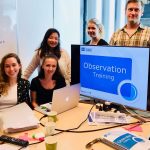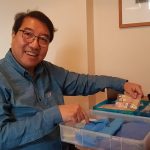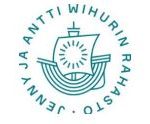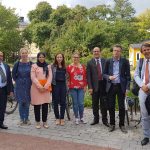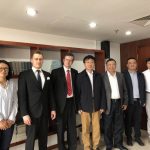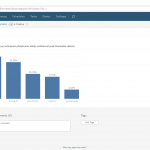 Research Centre for Physical Activity and Health (LIKES) conducts and develops multidisciplinary and applied research on physical activity. Likes is leading the PIILO-project on monitoring joy, physical activity and motor skills in young children. The specific purpose is to improve monitoring physical activity at national level and its use in promoting early childhood education. The project compares different methods of measuring physical activity and motor skills. The project started in spring 2019. Progressive Feedback participates in the project.
Research Centre for Physical Activity and Health (LIKES) conducts and develops multidisciplinary and applied research on physical activity. Likes is leading the PIILO-project on monitoring joy, physical activity and motor skills in young children. The specific purpose is to improve monitoring physical activity at national level and its use in promoting early childhood education. The project compares different methods of measuring physical activity and motor skills. The project started in spring 2019. Progressive Feedback participates in the project.
`Measuring movement is not a simple matter. In 2019, we compared physical activity indicators in kindergarten. The aim has been to compare the results of accelerometer and observation. The metrics were compared during normal day care days. The pilot was carried out in the vicinity of Jyväskylä in the fall of 2019. The physical activity of the child was measured with accelerometers placed on three different points of the body and a heart rate monitor. In addition to the accelerometer measurements, the physical activity of the child and his or her environment in the kindergarten were observed by three different methods, one of which was Progressive Feedback. Observers have been methodologically trained surveyors.
In 2020, in the second phase of the project, measurements will be carried out in ECEC units. At the end of the project, a report will be completed in 2020, which concludes with a justification of the plan to carry out population monitoring of the movement of young children. More information about the project can be found (in Finnish) at https://www.likes.fi/tutkimus/piilo-tutkimus-ja-kehittamishanke.
From the point of Progressive Feedback, the project is an excellent way to learn more about the reliability of the observation and the validity of the criteria (the relation of observation to other indicators).
 Professor Hui-Hua Chen from the Taiwanese Dong Hwa University Department of Early Childhood Education has been granted to join our team in Finland July-November 2023. The Taiwan ministry of science and technology has given professor Chen a grant to study children’s processes of learning to read. The pedagogical choices connected with learning to read will also be explored. Finnish and Taiwanese practices will be compared based on a large random sample conducted in Taiwan and Finland.
Professor Hui-Hua Chen from the Taiwanese Dong Hwa University Department of Early Childhood Education has been granted to join our team in Finland July-November 2023. The Taiwan ministry of science and technology has given professor Chen a grant to study children’s processes of learning to read. The pedagogical choices connected with learning to read will also be explored. Finnish and Taiwanese practices will be compared based on a large random sample conducted in Taiwan and Finland.
